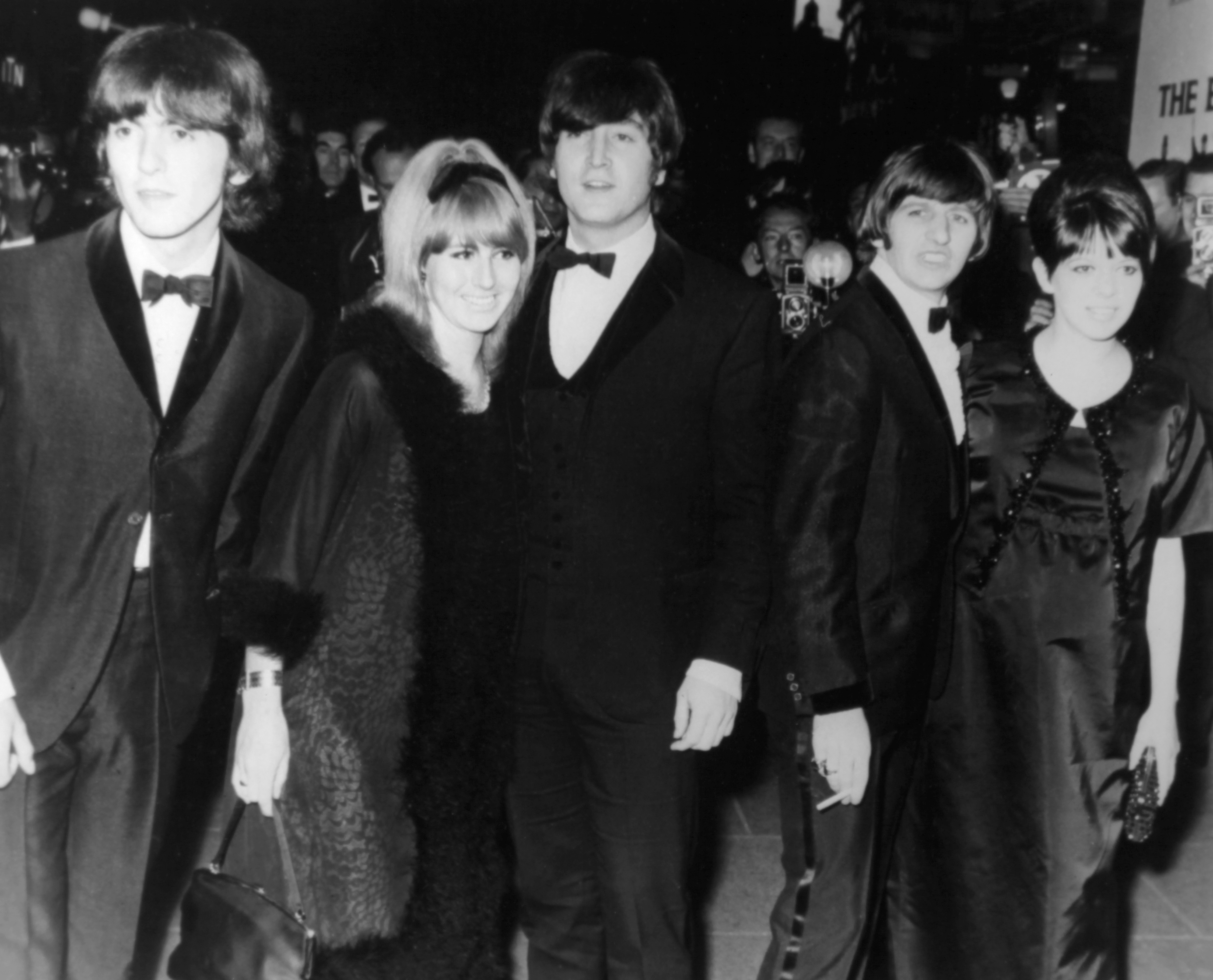What George Harrison Thought John Lennon’s Marriage Did to The Beatles’ Image in 1964
Article Highlights:
- How George Harrison thought John Lennon’s marriage affected The Beatles
- The success the band had achieved so far in 1964
- The Beatles weren’t concerned about the future

In 1964, only one member of The Beatles was married: John Lennon. Here’s what George Harrison thought of his bandmate’s marriage in terms of how it affected the group’s image and what was in store for The Beatles in the coming years (including marriages for the rest of the group).
George Harrison on John Lennon’s marriage in 1964
John Lennon married Cynthia Lennon in 1962 after she became pregnant. They stayed married until 1968 when John left Cynthia for Yoko Ono. The former couple met at the Liverpool College of art in a calligraphy class.
In 1964, Lennon was the only Beatle who was married. Harrison wrote about his friend’s marriage in his column for the Daily Express. He didn’t think it affected the group negatively, but he also thought the band (or, rather, their fans) could only handle one marriage.
“John’s did no harm,” he wrote with the help of Daily Express writer Derek Taylor, as recorded in the book George Harrison on George Harrison. “One married Beatle is O.K. But two or more, no.”
At the time, he was writing about the group’s longevity — what the future held for The Beatles. Eventually, more members would get married. What would become of the band then?
“We can’t all stay single forever,” he wrote. “And I don’t think the Beatles’ image could stand another marriage.”
The Beatles had already achieved massive success
In 1962, England was introduced to The Beatles with their single, “Love Me Do.” Just two years later, they were international superstars. At the time, Harrison and the rest of the band felt as if there was nothing they couldn’t do.
“We thought once that a broadcast would be [one of] the greatest things that could happen,” he wrote. “We got one. Then we thought TV would be fab. That happened. Then we wanted a series. Got one. The pace increased. Top of the bill at the Palladium knocked us out with excitement. But the Royal Show capped the lot and we thought nothing bigger could happen. We went to Paris and found they liked us. Then we learned we topped the U.S. hit parade. This, we thought, was the ultimate. What was there left to do? What? Carnegie Hall. The greatest concert hall in the world. Is there anything bigger for us? The answer is probably Yes.”
On the horizon was their film, A Hard Day’s Night, which opened even more doors for the group.
George Harrison wrote that The Beatles weren’t concerned about the future
In 1964, The Beatles frequently got the question, “How long are you going to last?”
“So many people want to know what the distant future holds for us,” wrote Harrison. “We don’t. We live for the present or, at the most, for the day after tomorrow.
“This doesn’t mean we’re saying the future doesn’t matter,” he continued. “Just that we don’t go peering into 1965 or 1984, looking for trouble.”
Though The Beatles weren’t exactly making a five-year plan at the time, they had big dreams.
“You ain’t seen nothing yet,” wrote Harrison. “Remember we’ve not yet traveled beyond Northern Europe. A month ago we were totally unknown in America. Then suddenly, it all happened. We became top of all the charts. And we’ve yet to appear in person. There’s a huge continent to conquer when we land at Idlewild on February 7. And there’s Australia, the Middle East, Africa, Canada. All these places to visit and it’s a mere 16 months since our first British record crept into the charts at No. 17.”
Surely things will change for the band, wrote Harrison, but in 1964, The Beatles weren’t anywhere near done reaching for the stars.
“We’ve years of life and great hopes as a foursome,” he wrote. “And though we will, one day, lose the position of number one teenage rave, though we may have to leave Liverpool and base ourselves in London, and though we all may marry, there’s still a lot of work to be done and a lot of songs to sing.”


